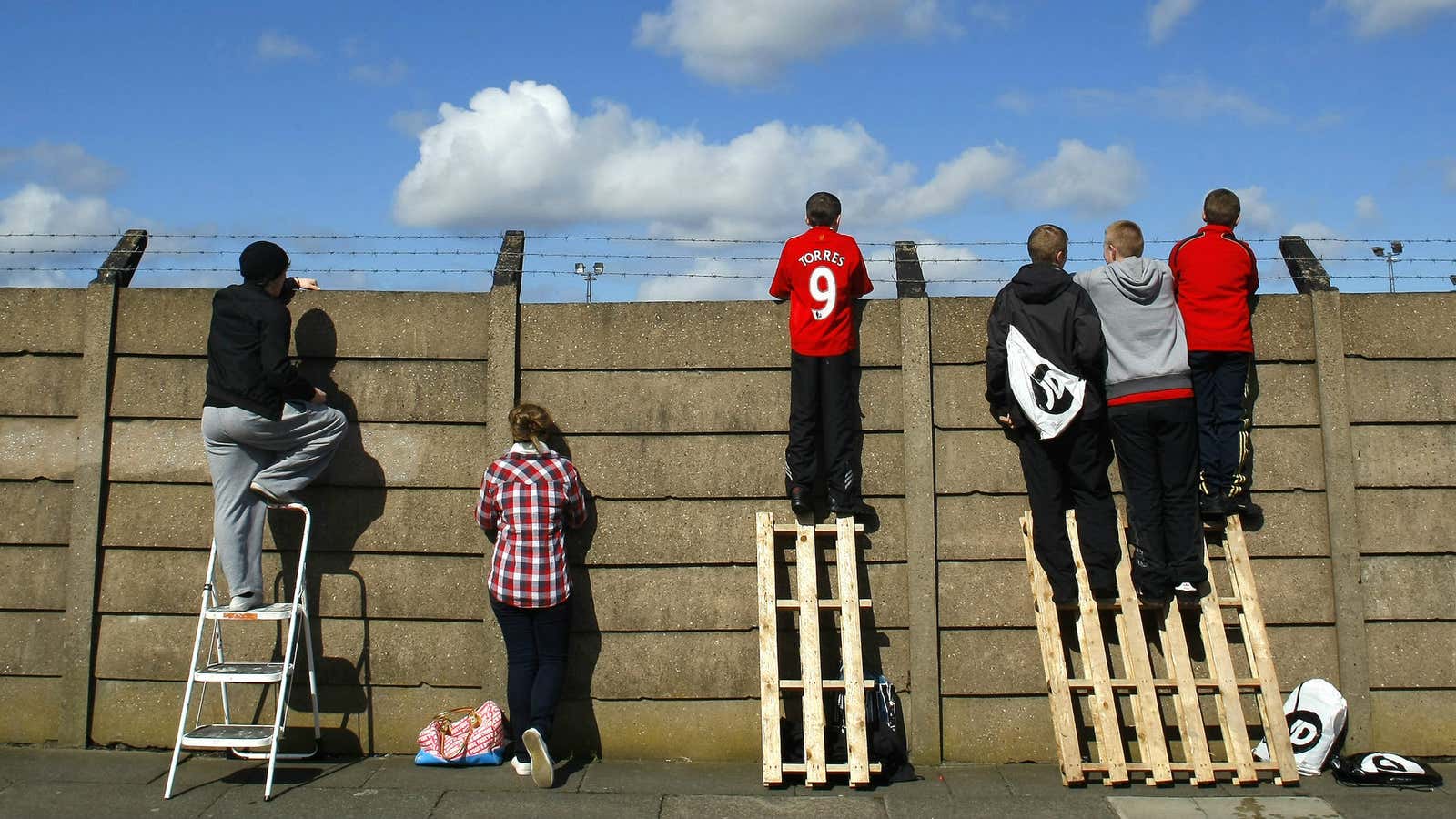This post has been corrected.
With government staff unable to keep up with mounting asylum applications, the UK is hiring students fresh out of high school to make decisions on asylum claims. College-age students on temporary work contracts will now issue potentially life-and-death orders, after just five weeks of training.
During busy periods, the practice of recruiting students on “gap year”—a break that some UK students take between high school and college—has been going on for years at the Home Office, a spokesperson told the Observer newspaper.
“They come in on a fixed-term appointment and are given the same training as anyone else,” the spokesperson told the paper. The Home Office confirmed that five weeks is the standard training period for officers tasked with evaluating asylum-seekers’ claims and issuing orders on whether they can stay in the UK. All the students’ decisions are reviewed by a senior staffer, it said.
In comparison, UK immigration lawyers can undergo years of specialized training after completing their law degrees.
“The use of gap year students is symptomatic of a wider problem in the UK of poorly trained people, sometimes on short-term contracts, taking asylum and human rights decisions with potential life and death consequences and which may be legally complex,” Laura Dubinsky, a UK human rights law and refugee attorney, told Quartz.
The UK received 22,314 asylum applications from January through September last year, according to the advocacy group Refugee Council. Almost 60% were refused. Germany, in contrast, processed 362,153 asylum applications from January to October, with a similar refusal rate.
In July, a court order forced the UK to halt its “fast track” system of asylum claim processing, in which applicants were detained in holding centers while staff sped through their cases in a few weeks. The condensed time frame resulted in decisions “systematically unfair and unjust,” the ruling judge said.
Correction (Feb. 27, 6pm EST): A previous version of this post stated that UK immigration lawyers undergo four years of extra training.
